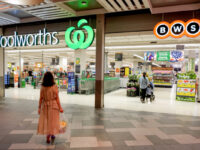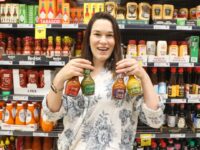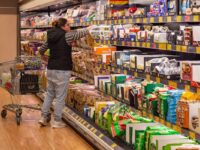 Coles has announced it is partnering with eco-friendly bio-plastic manufacturer Plantic Technologies to introduce recyclable packaging for a wide range of its Coles Brand fresh meat and poultry products.
Coles has announced it is partnering with eco-friendly bio-plastic manufacturer Plantic Technologies to introduce recyclable packaging for a wide range of its Coles Brand fresh meat and poultry products.
By purchasing an expected 121 million recyclable meat and poultry trays from Plantic, Coles hopes to reduce the amount of plastic waste it produces by the equivalent of 150 million recycled water bottles.
Alex Freudmann, Coles director of Fresh, notes the important role that packaging plays in maintaining food safety, supporting longevity and reducing food waste.
“For four years, our Coles Brand beef, lamb and pork mince has been packaged in recyclable trays sourced from Plantic. We now want to take the next step by transitioning a wider range of our fresh meat and poultry trays to Plantic’s new packaging so that it is not just recyclable but also made from recycled plastics and renewable plant materials,” said Freudmann.
“We are committed to reducing our impact on the environment and continue to look for opportunities to increase the content of recycled material in Coles Brand packaging and improving recycling communication to customers on pack.”
Plantic’s products carry the Australian Recycling Label which provides consumers with information on what packaging can be recycled and the ways that it can be recycled safely.
Brendan Morris, Plantic Technologies CEO, said the company saw the partnership with Coles as a defining opportunity to strengthen the local recycling industry.
“The problem in Australia is that there hasn’t been [a lot] of processing of kerbside recycling done on-shore,” said Morris.
“As a result, there has been little investment to reprocess the waste within Australia and there’s not enough capacity here. At the same time, Australia is importing plastic into the country that can’t be recycled. These two factors combined means the waste is just piling up.”
Earlier this year, Coles pledged to to make all of its own brand packaging recyclable across its supermarkets by 2020, with managing director John Durkan noting the company was the first major food retailer to announce such a target; ahead of the Federal Government’s target of 2025.
“By the end of the year we will also connect every Coles store to the vital food rescue program, SecondBite, meaning surplus edible food from every Coles supermarket will be redistributed to people in need,” said Durkan. “By connecting an additional 130 supermarkets to SecondBite this year, we will also be further diverting food waste from landfill.”
The company also committed to provide customers with an option to recycle all their soft plastics at every Coles supermarkets across Australia to then be converted into a range of products including outdoor furniture and road base.
















